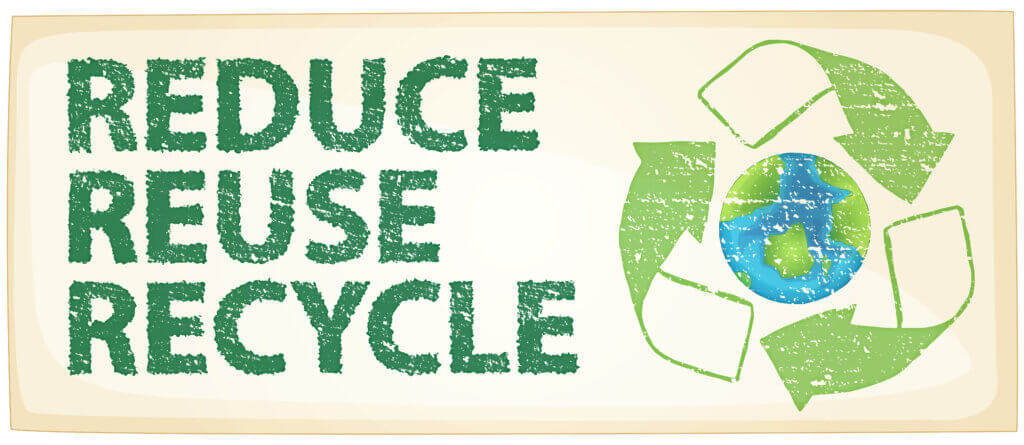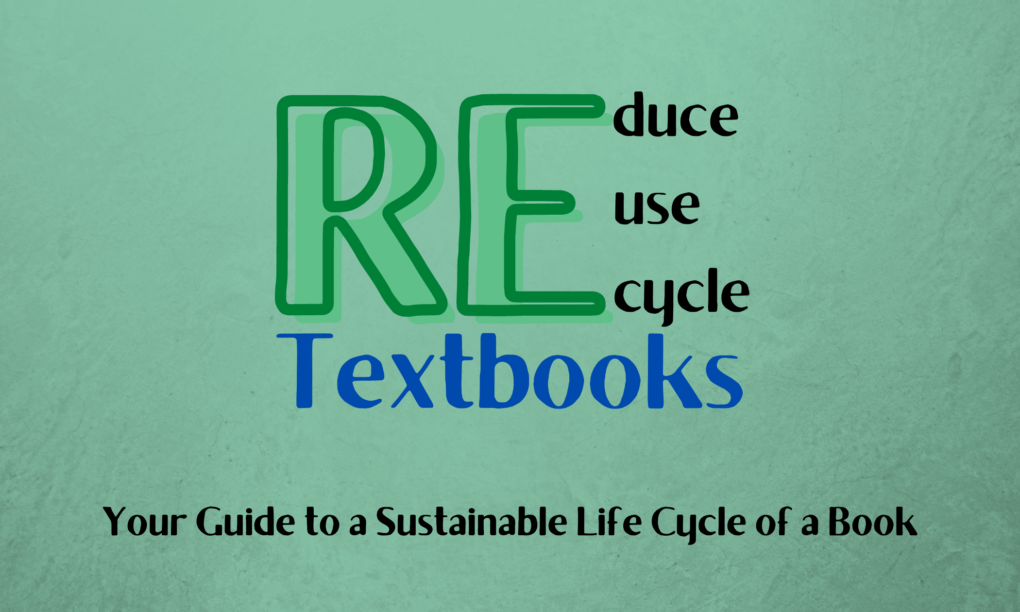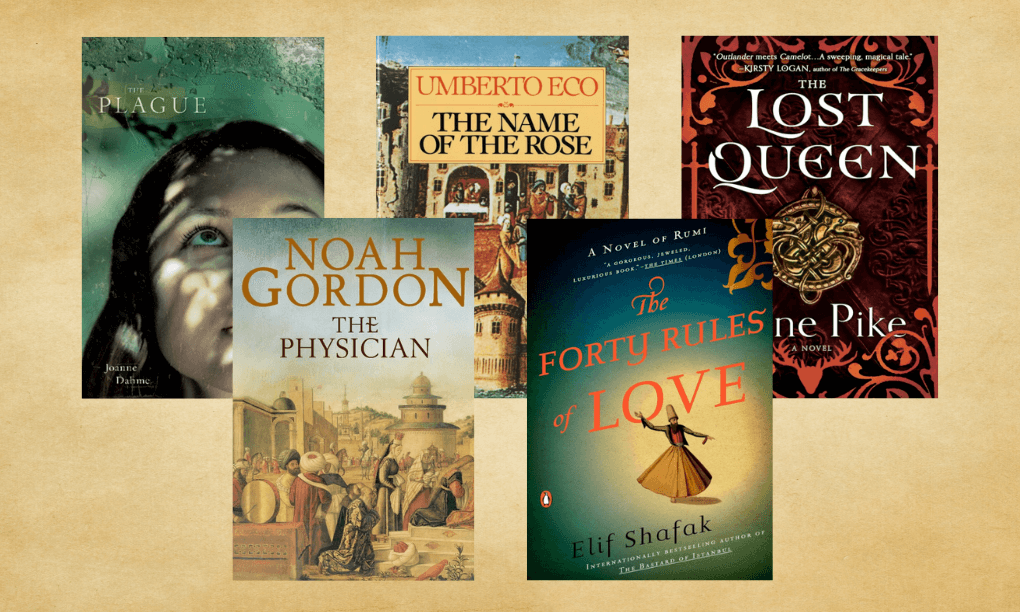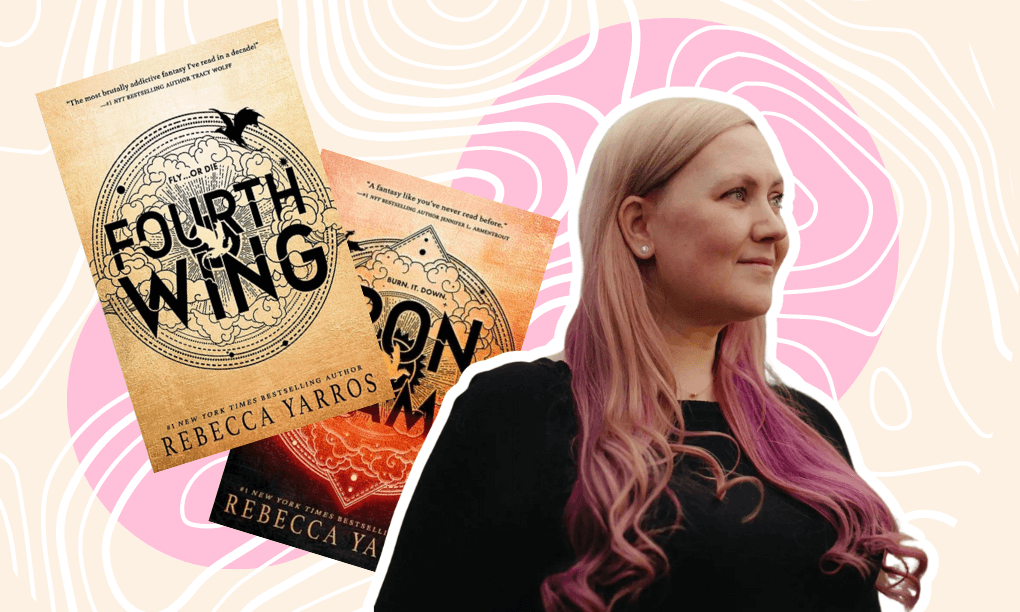On average, a student like you uses eight textbooks per academic year—depending on the major, of course. It all amounts to… well, more than 30 expensive books proudly occupying your shelves. And you can definitely feel the burden of that knowledge when figuring out what to do next with all these books. Of course, you can’t just dump them in the general waste bin. You need to know how to recycle textbooks.
Your collection might consist of diverse items—paperbacks, hardcovers, printouts, and study guides. Some of them are barely opened, while others are worn out and full of highlights. Is there a specific way to recycle old textbooks and products like these? Are there any options other than recycling? Here is a comprehensive guide full of tips on how to reduce, reuse, and recycle textbooks.
Book publishing and distribution have not yet ubiquitously implemented sustainable practices. As we’ve examined before, book production often draws upon exhaustible resources and poisonous ingredients. The distribution and marketing practices are no better since even absolutely new books are often stripped of their cover and landfilled.
We don’t have numbers on how many textbooks end up in landfills, but there is no doubt that learning materials make up a considerable part of 17,200,000 tons of paper products landfilled yearly. There is clearly a positive dynamic of paper products being recycled more often than landfilled (compared to 43,570,000 tons of paper waste that ended up in landfills in 1990), but we can’t just stop there.
TIP: There are several characteristics that influence the recycling method, such as whether the book is hardcover or softcover, its condition, as well as your location. Check the instructions given below alongside your regional guidelines for recycling books.
No wonder it is crucial to be a responsible consumer of books and textbooks, taking care of them up to the last phase of their life cycle. However, recycling should be your last resort. According to the famous three’ R’s waste hierarchy, you should also figure out how to reduce and reuse your textbooks. Let’s explore!

REDUCE
Rent or Buy Used Textbooks
You’ve undoubtedly heard that renting or buying used textbooks is cheaper than getting new items from a bookstore. But it’s not the only reason why this practice is so popular with college students—it’s also more sustainable! By buying used or renting, you don’t introduce new textbooks into circulation but extend the usage of those already on the market.
Why is it so? Textbooks, like many other books, retain their value for quite a while after being published. Most of the time, you won’t even notice the difference! Renting textbooks is an excellent example of a sharing economy that’s been brought forward as one of the tangible solutions to overproduction. So please rent the books you’re only planning to use for a short while.
TIP: BooksRun has discovered that you can save up to $300 per academic year if you rent or buy used. It’s a win-win situation!
Purchase Only Necessary Items
Another helpful strategy for reducing the number of new or used textbooks is to get only the essential items. You need to do some background research to see if all the books listed in a syllabus are actually used throughout the course.
First, ask your professors. For them, it will be a sign of your interest in the course, while you’ll learn which books to get and study first. You can also find students that have taken this course before. Alongside some useful information about the textbooks, you’ll definitely get priceless tips on succeeding in the class.
TIP: If you accidentally ordered the wrong book with BooksRun, you have 21 days to return it and get your money back (given that the book is in the same condition). The policy is designed for you to spend money only on the books that you need.
Buy eTextbooks
Reading eTextbooks instead of hardcopies will definitely reduce the number of physical books lying around in your room. It sounds like a sustainable option that is also convenient: you’ll declutter your physical space, you will have instant access to the information, and it’s also often cheaper than getting physical copies.
However, accessing and reading eTextbooks requires many additional resources (for charging your device or keeping a cloud copy of the book). On the contrary, a physical book is already there, and you don’t need much more than a reading light to use it. So it is a dilemma of sorts, and the choice is up to you!
REUSE
Sell Used Textbooks
Textbooks maintain value for a few years—and decades, in some cases—after they’ve been published. Even a publication of a new edition does not always mean that the older versions are out of the market.
Currently, you will face three primary options to resell college books: college bookstores, local bookstores, and online marketplaces that provide buyback services for used textbooks. However, mind the condition of the books you are going to sell (e.g., “good” or “like new”). You should also check acceptance guidelines—not all stores accept loose-leaf and international editions.
TIP: Online marketplaces like BooksRun offer lucrative prices for used books. Save yourself a trip to a college bookstore and check buyback offers online at Booksrun. When you sell a book to BooksRun, the shipping costs are covered.
Donate Books
It might be that a particular textbook is not used for college courses anymore, and its market value is low. Nevertheless, any learning materials might still be useful for prospective students who want to get a sense of the subject or prepare for exams, for example.
You can always offer your used textbooks to a local library, but check what kind of second-hand books they accept. Don’t dump all your used books on the library staff to sort out—do your part of the job.
Donating used textbooks to charity organizations is also a good option—Goodwill and American Book Drive are quite important in this respect. American Book Drive redistributes books to underfunded schools, small libraries, hospitals, and other communities. Here is an exhaustive list of their drop-off locations.
Exchange or Give Away
There are a bunch of opportunities to exchange books or give them away. Social networks (especially Facebook Marketplace) can be helpful if you want to find a person in your community who might need this or that item. Check for other local swaps and selling resources here.
RECYCLE
Repurpose
If selling or donating is not an option—your books are too old, full of highlights, or missing pages — then you can turn to recycling. However, before taking a ride to your local recycling point, first think of repurposing old books!
It is possible to create genuinely artistic objects out of those old books! Check this video by Brian Dettmer on Old Books Reborn As Intricate Art—it’s breathtaking.
Well, not all of us are as crafty as Brian. There are still many affordable ideas that anybody can implement—like turning old books into gift pouches or a Christmas wreath! Here is a Pinterest collection full of inspiring ideas.
Recycle Old Textbooks
And only now do we turn to textbook recycling! How to recycle books? Generally, books should be recycled with other paper waste. It’s pretty self-evident for softcovers and paperbacks. The situation is more tricky with hardcovers: remove the cover and the spine first! Also, you can’t recycle old textbooks that are heavily damaged by water. You should dispose of them with your household waste.
Reduce, Reuse, or Recycle College Books?
There is no single solution that will help you get rid of old textbooks in an eco-friendly way. Most probably, you should opt for a combination of these strategies and recycle old books unless you can’t go with reusing and reducing. It is also crucial to adopt an approach that you can keep up with on a daily basis. However, always start with trying out ways to reduce and reusing old books, and only then recycling.
TIP: BooksRun supports your eco-friendly approach: we offer various ways to reuse textbooks! You can choose from our great inventory of used textbooks that you can buy or rent. After the academic year is over, you can easily sell used textbooks to BooksRun as well! Moreover, you can join our Let’s Go Green initiative and contribute to reforestation by planting trees!


